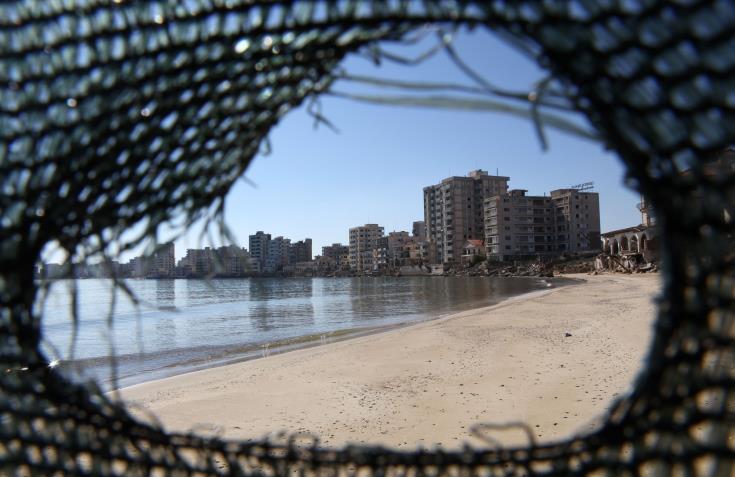
Anastasiades and Papadopoulos may start from different starting points on the Cyprus problem, but their policies objectively meet at the same point: stagnation and the slide towards partition
Statement by the General Secretary of the C.C. of AKEL A. Kyprianou
AKEL C.C. Press Office, 22 January 2018, Nicosia
An attempt is underway by the election campaign teams of Nicos Anastasiades and Nicolas Papadopoulos to degrade the candidacy of Stavros Malas.
The truth is that they have no arguments to engage politically with Stavros Malas because Stavros Malas submits thoughtful statements and puts forth proposals with seriousness and persuades people with his credibility, honesty and sincerity.
On the opposite side, Mr. Anastasiades and Mr. Papadopoulos are unable to convince those they would like to.
As far as the Cyprus problem is concerned, Mr. Anastasiades has put his personal ambitions above everything. He acted with regressions, contradictions and inconsistency, as a result of which he became untrustworthy.
Mr. Anastasiades can’t also convince people of the government’s supposed “success story” in the economy, given that one-third of the population is on the poverty line. The profits of the few are rising, while the incomes of the majority of the people remain frozen or are declining. At the same time, Cypriot society is suffering from the problems facing the health system, pensioners, people with disabilities, young unemployed people and the deregulation of labour relations and so on. All this is the result of the policies implemented by the Anastasiades-DISY administration. In short, he gave a lot to the privileged few, but very little to the majority of the people.
Nicolas Papadopoulos supported these policies for nine and a half years with consistency. He argues that his candidacy is a candidate for change. What change is he talking about? He voted for the haircut on bank deposits and all the anti-social bills tabled by the Anastasiades government. Furthermore, he voted in favour of all the state budgets submitted by the Anastasiades-DISY Government. During the pre-election campaign he changed his profile, but this can’t make him acceptable as a leader promoting the people’s interests.
As far as the Cyprus problem is concerned, Mr. Nicolas Papadopoulos is called upon to explain to citizens – now that the much-vaunted supposedly “new strategy” has deflated – what kind of a solution he is advocating. Is it the solution outlined in the 8th of July agreement that was his party’s banner? Is it perhaps the solution described by EDEK Social Democratic party leader Mr. Sizopoulos after he abandoned bizonal, bicommunal federation? Is it the solution of a single state supported by the leader of the Ecologists Mr. Perdikis? Or is it the solution advocated by the leader of “Solidarity” Mrs. Theocharous with her outbreaks in favour of Enosis (Note: union of Cyprus with Greece)?
Mr. Anastasiades and Mr. Papadopoulos may start from different starting points on the Cyprus problem, but their policies objectively meet at the same point: stagnation and the slide towards partition.
For all these reasons, Stavros Malas’ candidacy is the only serious and reliable one. Stavros Malas has a programme for the Cyprus of tomorrow. A programme with positions and proposals, with a will for undertaking initiatives and a sincere desire to pave the way for the solution of the Cyprus problem on the basis of principles.
Stavros Malas has specific proposals that give a new impetus to the Cyprus economy, for generating investment in research, innovation and for the utilization of young scientists. He has concrete proposals that create dignified and quality jobs and provide support for those in need. He has a vision for a different Cyprus that will move forward with meritocracy, transparency, progressive reforms and growth for all. Stavros Malas has a vision for the Cyprus of tomorrow.




